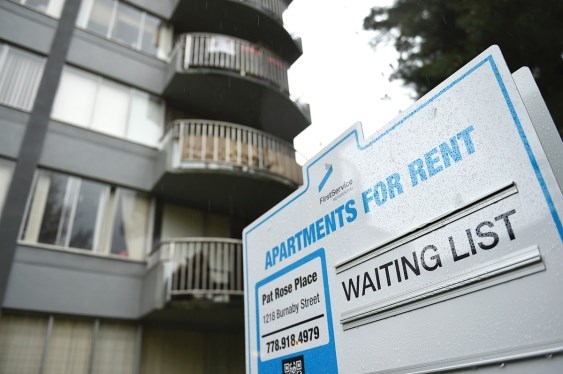To continue on where I left off last week: While the city of Vancouver continues, as it has for years now, to do nothing more than ponder the problems of short-term rentals, the likes of Airbnb continue to encourage illegal activities that significantly reduce the availability of affordable rental properties and drive up the cost of real estate.
The activities are illegal because they violate a city zoning restriction that prohibits rentals of less than 30 days without a license for a hotel or a bed and breakfast operation. According to the city’s chief housing officer Mukhtar Latif, this is the case in virtually all Airbnb listing in Vancouver, which, as I noted last week, number 4,728 — of which 67 per cent, or 3,179, are either complete homes or apartments.
Simon Fraser University graduate student Karen Sawatzky has been drilling away at this issue for almost three years now as she puts together her Urban Studies master’s thesis on the impact Airbnb has been having on affordable rental housing in our city.
She notes several city policies that are in conflict with the growing impact of Airbnb aside from the zoning bylaw on short-term rentals. There is also the great amount of noise the city makes about being a green city with affordable housing. Yet because of Airbnb, more people are forced out of the core of the city where they could either walk to work or cycle and instead are required to commute.
Aside from impact on the environment, a city study pointed out that by adding the cost of commuting to the cost of rent for those forced out of the city’s core, the cost of living is less affordable than simply renting in Kits or the West End.
When Airbnb first came on the scene, the folks most concerned were those running licensed bed and breakfast operations. But as Sue Willis, president of the B.C. Bed and Breakfast Innkeepers Guild told me, they have managed to dodge that bullet.
Even though Airbnb started out as a couple of guys who offered their clients both bed and breakfast, that is no longer the case for the vast majority of the listings. Willis also pointed out that the folks who should be concerned are the hotel owners. Those are the folks who are most undercut by the short-term rental market occupied by Airbnb. But tourism is booming and hotels are doing just fine with the lower Canadian dollar, so the B.C. Hotel Association has nothing to say.
Besides, saying anything, according to Sawatzky, doesn’t get you very far with the city. Complaints move, as the cliché would have it, slower than molasses in January. Nor is the city particularly pro-active in encouraging people to blow the whistle on the undoubtedly thousands of people who are breaking the zoning bylaw. That could explain why, in the past two-and-a-half months, according to Latif, there have only been two complaints about Airbnb listings.
One group that has been inspired to take action are the folks who make up strata councils. Sean Ingraham runs a strata management company called First Service, and he has been holding workshops for condo dwellers who want to amend their bylaws to block short-term rentals.
The issue that drives most strata councils to make that move involves security. Knowing your neighbour becomes problematic. When the joint is taken over by short-term rentals you don’t really know who should be in the building.
According to Sawatzky, now that we are heading into the tourist season, she is hearing from people who are being squeezed out of long-term rentals so their landlords can convert them to more profitable Airbnb listings. And with that in mind, you can understand how this is a factor driving up real estate prices. They use to call basement suites “mortgage helpers.”
Now homeowners and real estate investors are looking at Airbnb the same way.
The possibility of revenue for a short-term rental is significantly higher than a long-term rental. That means, you can bid up that condo or house price that much higher and still cover the cost.
It may be great for investors. Not so much for someone who just wants a place to live close to where they work.
@allengarr



